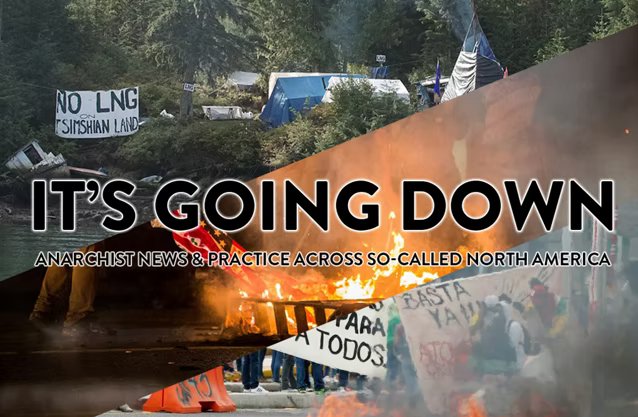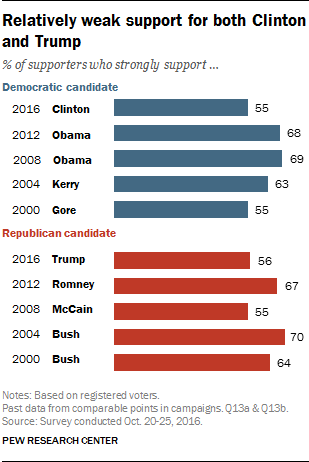Filed under: Analysis, Critique, The State, US

What does it mean that one candidate was chosen over another–how many people enthusiastically vote for any U.S. President, what impact can the President actually have, and what are alternatives to buying into this political system?
Estimates indicate that 128.8 million people voted in Tuesday’s Presidential election, which is 55.6% of the voting-eligible population. However, if people who are typically overlooked for reasons of age and felony status are included, the percentage drops to only 39.6% of the total U.S. population having voted.
Of those who voted, 59 million voted for the winner–a mere 18.2% of the total population.
According to a survey from the PEW Research Institute from late October, of those who support a particular candidate, only 55% or 56% “strongly support” their candidate of choice.
Even if it is assumed that a President’s desires perfectly align with those in the 10% of the population who are strong supporters, that leaves a staggering 90% of people and their needs, desires, and ideas unrepresented by the country’s figurehead.
This statistic is not unique to this Presidential election or to democratic processes in general, and it points to some of the flaws inherent to democracy. Democracy creates an illusion that people have power through voting and other approved political actions such as letter writing or peaceful assembly. It relies on representation, which simplifies people’s wishes into campaign slogans and cannot express or seek to fulfill desires as effectively as direct participation can. Democracy accepts majority rule, which encourages people to silence some desires and conform to party lines in an attempt to build a majority opinion–not only oppressing dissenters but also homogenizing the masses and creating conflict between groups.
This political system offers voting as one of the few acceptable channels for participation. Those who refuse to vote or simply aren’t engaged enough to participate are generally considered by the political establishment to be apathetic about their lives or their world. But what if each unpunched ballot were seen as a vote against the established order in this country–as a refusal to participate in continued enslavement to a system that isn’t working. Even if many of those who do not vote do so without a clearly articulated rejection of the establishment, their disenfranchisement itself is testimony to the failure of those in power.
Contrary to what political leaders and their defenders would have us believe, voting is not the only way to be actively engaged in the world, nor is a refusal to vote a demonstration of ignorance or apathy. By gathering with friends, neighbors, faith communities, families, co-workers, etc., we can solve our own problems without looking to the Trumps and Clintons of the world for answers. If we build our own community health centers and staff and fund them, there’s no need to worry about the bureaucratic nightmare of Obamacare or whether Trump is going to repeal it. If we care for neighbors and friends who need help, we won’t have to worry about changes to the welfare state. If we establish our own mechanisms for community self-defense, we won’t need the cops who shoot our friends in the back and get away with it. If we get together with people of all races to confront racist violence in our communities, we’ll be stronger when facing the reality of a President who preaches hate.
Beyond Republican and Democrat, conservative and liberal, blue and red states, biased media spectacles and politicians who seek to control and limit us, we can find the freedom to make of this world what we want. But first we have to turn away from those in power and turn toward ourselves and each other.
As some continue to accept our current form of government and others reject it and seek alternatives, those in the U.S. are still left with a change in President and a myriad of opinions about its effect, if any.
Local Perspectives
In Vanderburgh County, Indiana, Trump won with 56.2% of votes, or a total of 40,422 votes, meaning that 22.2% of the population voted for him with approximately 12.4% “strongly supporting” him.
A handful of locals from the other 88% were interviewed regarding the consequences of Trump’s upcoming presidency.
Some people spoke of policies Trump has mentioned throughout his campaign, fearing Trump will be “trying to take away abortion rights from me and make birth control unaffordable and harder to access” and questioning how far his policies could go, “what if he takes away our marriage equality? What if these idiots really try to build a wall around our country? What if he somehow passes body searches?”
An interviewee whose career is tied to satisfying federal regulations before infrastructure projects begin fears that long-established policies on environmental impact, historic preservation, and cultural resources will “go down the drain in order for Trump to make more work for pipeliners” and others.
Some fear not only Trump’s policies, but the social impact of his “racist, fascist, sexist, misogynist” rhetoric.
One person stated, “All I can see in my mind is white cops on every street eyeballing each human that passes. I fear the KKK,” which has a history in Evansville, including as Klan headquarters in the 1920s, “will become prevalent and violence will ensue.”
Another person talked about possible social dynamics among neighbors and acquaintances, wondering if people will internalize Trump’s attitudes about the acceptability of assaulting women or hating people based on race, sexuality, or country of origin.
When considering what to do about these imagined consequences, someone suggested door-to-door organizing around anti-racism and other values and supporting people who are already in conflict with local fascist, homophobic, white supremacist groups.
One interviewee mentioned the irony in Trump being touted as “anti-establishment,” saying of the candidates, “they’re all bourgeois,” and adding, “I see a lot of organizing in my future…I would be doing the same shit if she [Hilary] would have won.” The interviewee predicts “a lot of other people finally opening their eyes,” and “wanting to organize.”
“I want to hide under a rock,” said another, “but at the same time I’m ready to fight for my women, my POC [people of color], my LGBT people, my Muslim people, every person negatively spoken of and made to feel less than equal and awesome by this motherfucker. I’m ready to fight this nightmare.”






